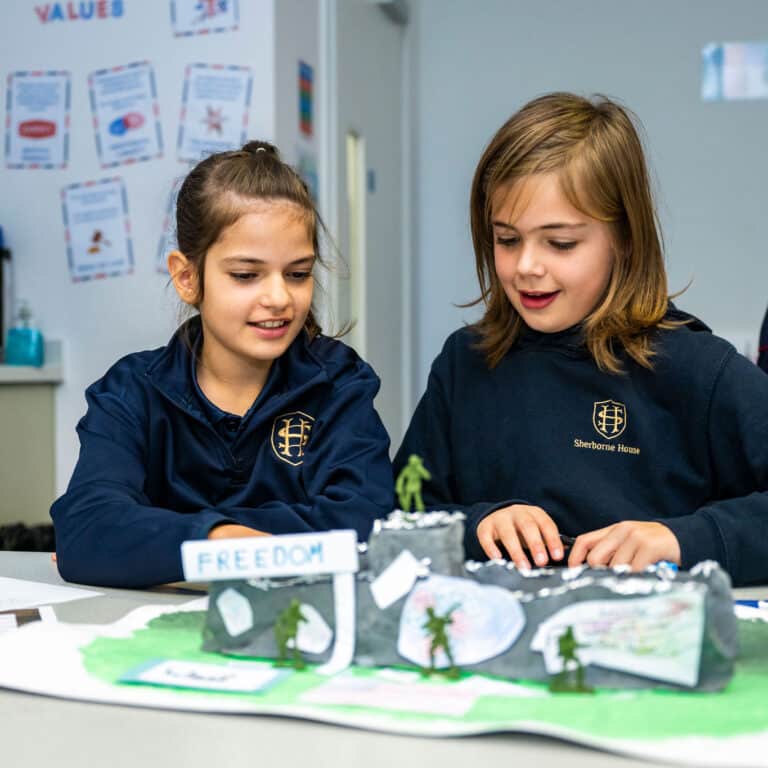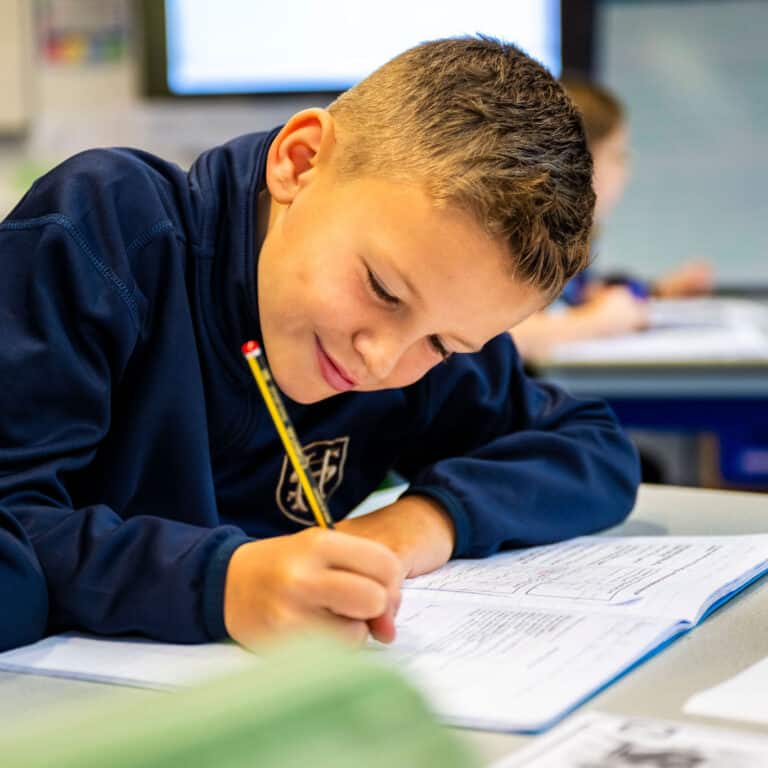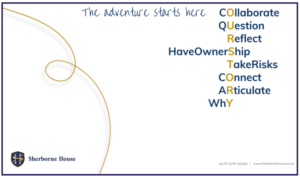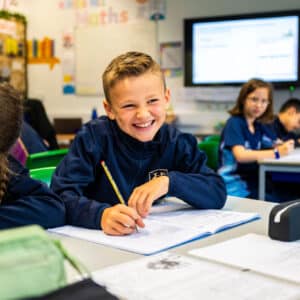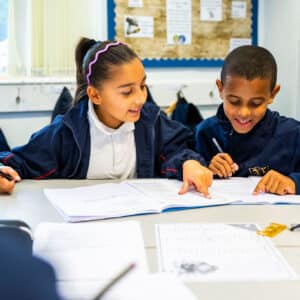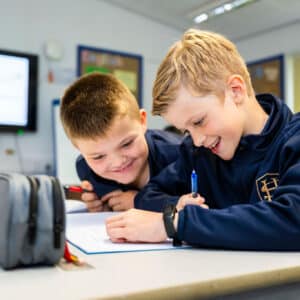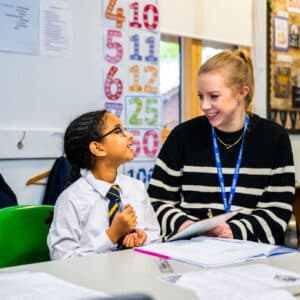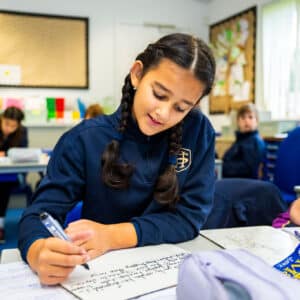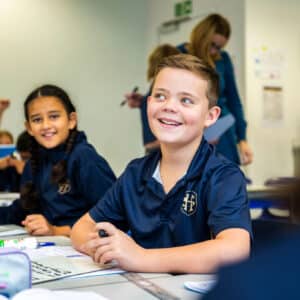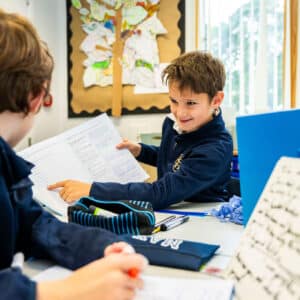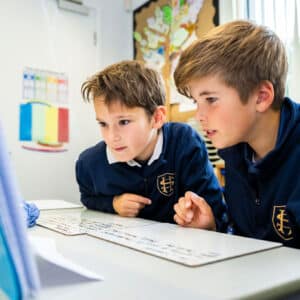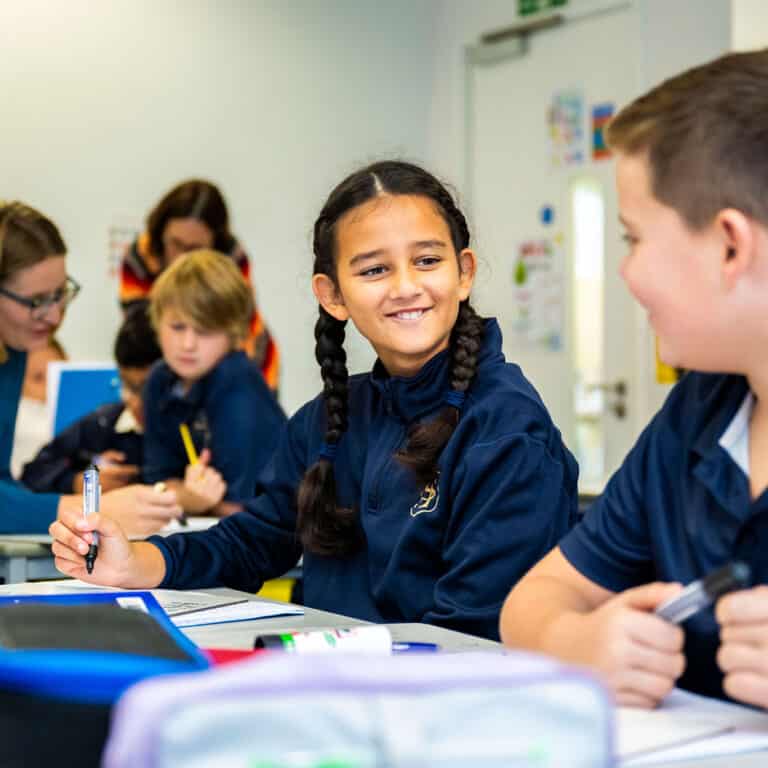At Sherborne House, we believe that every child has the right to be taught mathematics in a way that fosters curiosity, deep understanding, and practical application. Through a dynamic and engaging curriculum, we aim to develop all pupils into confident problem solvers who can apply their mathematical knowledge to real life situations. Our approach encourages students to question, investigate, and explore mathematical concepts independently, ensuring they are well-prepared for the next stages of their education.
Through a well rounded and carefully structured curriculum, pupils at Sherborne House are introduced to key mathematical concepts in a logical and systematic way. Teachers use a wide range of resources and techniques to support and challenge learners; our goal is to develop a positive attitude towards mathematics, inspiring pupils to take risks, be reflective, and to take ownership in their learning.
In the Early Years and Lower School, the focus is on developing a solid understanding of number sense, pattern recognition, and basic operations (addition, subtraction, multiplication, and division). Children are encouraged to explore mathematical concepts through play and hands-on activities, building a strong foundation in number fluency and mental arithmetic. As children progress, we introduce more structured methods, incorporating practical applications of math in everyday contexts. Alongside these skills, children are encouraged to explain their thinking and approach, fostering critical thinking and problem-solving from an early stage.
In the upper school, maths classes are set into flexible groups to enable support and challenge to be correctly targeted, ensuring each individual is taught at the pace and level that is right for them. We continue to build upon the strong foundation from lower school, with a deeper focus on reasoning, application, and more complex operations. Problem-solving becomes a key element, with students encouraged to approach problems logically and systematically, using a range of strategies to find solutions. Lessons are interactive and engaging, combining direct instruction with collaborative work and independent challenges.
Fluency is a central focus in our mathematics teaching. Pupils are taught how to recall key facts quickly and accurately, while also developing the flexibility to apply their knowledge to a variety of problems. This is supported by our number bonds and times tables progression programme, which aims for children to be fluent in both multiplication and division facts up to 12 by the end of year 4.
In Years 5 and 6, pupils are exposed to a range of materials to support their preparation for 11+ exams and secondary school. Pupils practice problems in the style and format that will be used in 11+ exams, ensuring they feel confident and prepared to take on their next challenge.
By the end of their time at Sherborne House, we aim to create independent thinkers, with a love of mathematics, who can confidently apply their mathematical skills in a variety of situations to enable success in their future education and beyond.

